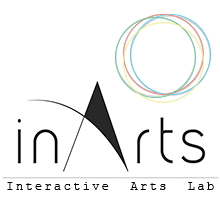At the Interactive Arts Laboratory (InArts Lab) outward orientation is central to our ethos: connecting artistic research with wider communities, networks, and fields beyond the university. A case in point is our participation, through the Node for Hybrid Arts, in the EU project Rewilding Cultures (RC), a transdisciplinary initiative exploring innovative approaches to artistic production, inclusivity, and environmental responsibility at the intersection of arts, science, and technology.
Building on the legacy of Feral Labs, RC creates temporary hubs where artists, scientists, technologists, and educators work side by side—experimenting, sharing knowledge, and developing solutions that integrate creative, scientific, and social insights. These collaborative environments highlight not only the generation of new cultural and technological artefacts but also the vital role of tacit knowledge, dialogue, and mutual learning.
Cross-cutting themes of environmental sustainability, accessibility, and inclusivity are embedded in every activity, ensuring that experimentation and innovation are aligned with ethical, ecological, and social responsibility. By embracing this “rewilding” approach, InArts Lab fosters methods, practices, and collaborations that are relevant for both present and future artistic research.
Our partners—from Bioart Society in Finland to Schmiede Hallein in Austria, ART2M in France, Radiona in Croatia, Cultivamos Cultura in Portugal, Culture Yard in Denmark and the Projekt Atol in Slovenia—illustrate the lab’s commitment to dynamic, international collaboration, opening pathways for our researchers and students to engage with cutting-edge, community-driven projects worldwide.
Through these networks, InArts Lab cultivates a research culture where artistic experimentation, social engagement, and ethical responsibility intersect, demonstrating the power of outward-looking, collaborative artistic research.


